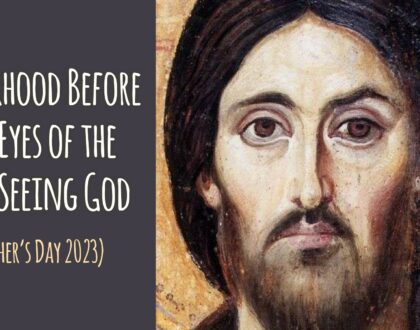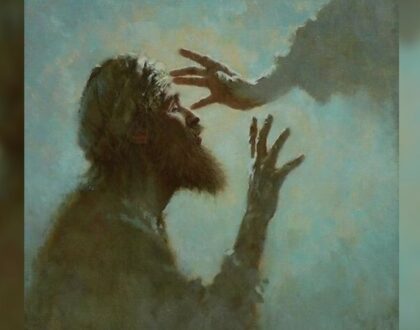Reflection Questions: Whatever You Do, Stay Awake! Part 1 (Mark 13:34-37)

by Pastor Gene
Jesus: “It is like a man going on a journey, when he leaves home and puts his servants in charge, each with his work, and commands the doorkeeper to stay awake. 35 Therefore stay awake—for you do not know when the master of the house will come, in the evening, or at midnight, or when the rooster crows, or in the morning— 36 lest he come suddenly and find you asleep. 37 And what I say to you I say to all: Stay awake” (Mark 13:34-37).
- Consider Mark 13:34-37 above. Jesus describes Himself as “a man going on a journey” promising to come back. Upon leaving He “puts His servants in charge, each with his own work.” Jesus is the Master who’s gone away, but is returning soon. Believers are the servants He’s left in charge ‘each with his (or her) own work’ to accomplish. What has Jesus put us in charge of? What are some of the things Jesus might mean by the “work” He’s left each of us to do?
- This brings up the point that there are no ‘spares’ in God’s kingdom, no unessential people. Every member of the Body is vital, despite appearances to the contrary. The Church tends to give more attention to brothers or sisters with more public gifts than to those who serve the Lord quietly, yet faithfully. Ask someone to read 1 Corinthians 12:1-7, then 12:12-27. What is the Lord saying to us through these verses? Discuss.
- Paul tells us that there are “varieties of gifts” (12:4) and “varieties of service” (12:5). What’s the distinction between “gifts” and “service”? Is “service” here describing Jesus’ words in Mark 13:34, where the leaving Master “puts his servants in charge, each with his work”? If so, how do the “gifts” God gives us relate to the “work” He assigns us?
- These “gifts” are all from the same Spirit, the “service” from the same Lord, and “the same God [the Father] empowers them all in everyone” (12:4-6). Notice the sovereignty of God here! He’s not only equipping (“gifts”), but He’s directing each individual believer into a specific area of service. The Father, the Son and the Holy Spirit are all working here! Sounds important, no? Do you think believers take the employment of their spiritual gifts as seriously as God does? Why or why not? What are we saying to God when we neglect to use them?
- According to 12:7, why does God give us the gifts He does? What does this mean? Also, this verse describes the use of our spiritual gifts as “the manifestation of the Spirit.” Wow! What does this tell us about what people might see when we use our gifts? Furthermore, Paul says, “to each is GIVEN” these gifts. That sounds like an amazing PRIVILEGE of grace to me. You? So, how carefully should we handle such a privilege?
- In 1 Cor. 12:12-27, Paul describes all true believers as individual parts of a human body, the Body of Christ. It’s a wonderful analogy! What do these verses say about the importance of each, divinely-appointed member? Which part of your physical body would you be happy to do without? Get it? Paul’s statement that “the eye cannot say to the hand, ‘I have no need of you’” is a warning against devaluing the importance or usefulness of any other follower of Jesus. What happens when we do?
- How might neglecting our spiritual gifts hurt the rest of the Body? How might the devil use this to wear out the saints and breed discouragement? Are you a strain on the Body, or a contributing member of it? What needs to change in 2024?
- So, back to Mark 13:34-37. Are you being faithful to the work Jesus left you to do while He’s away? What does it mean to “stay awake”? Might it mean faithfully using our gifts as we wait His return? After all, why did the “unfaithful” servant in Matthew 25:18 bury the money His Master entrusted him to invest? Because he never really believed that his Master was coming back. Gulp! Could that be why many spiritual gifts go unused?
- Bonus: did Paul learn the importance of each Body member through his own personal experience? Did he do what he warns us not to do? See Acts 15:36-41. What did Paul do? What was the result of his action? Consider: the separation between Paul & Barnabas took place during Paul’s 1st missionary journey (c. a.d. 46-48). Paul wrote 1 Corinthians AFTER this split (in the spring of a.d. 53, 54, or 55). I wonder if Paul had this incident in mind when he wrote 12:22-26 (read it again now)? Was he reflecting on the way he devalued John Mark and the division it caused? Notice: he says, “God has so composed the body, giving greater honor to the part that lacked it, that there may be no division in the body, but that the members may have the same care for one another.” Any thoughts?
Recommended Posts

Reflection Questions: Fatherhood Before the Eyes of the All-Seeing God (Father’s Day 2024)
June 16, 2024


